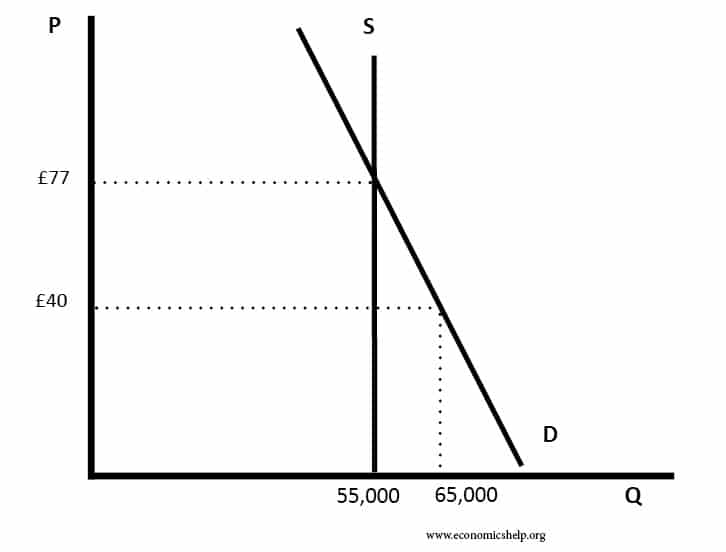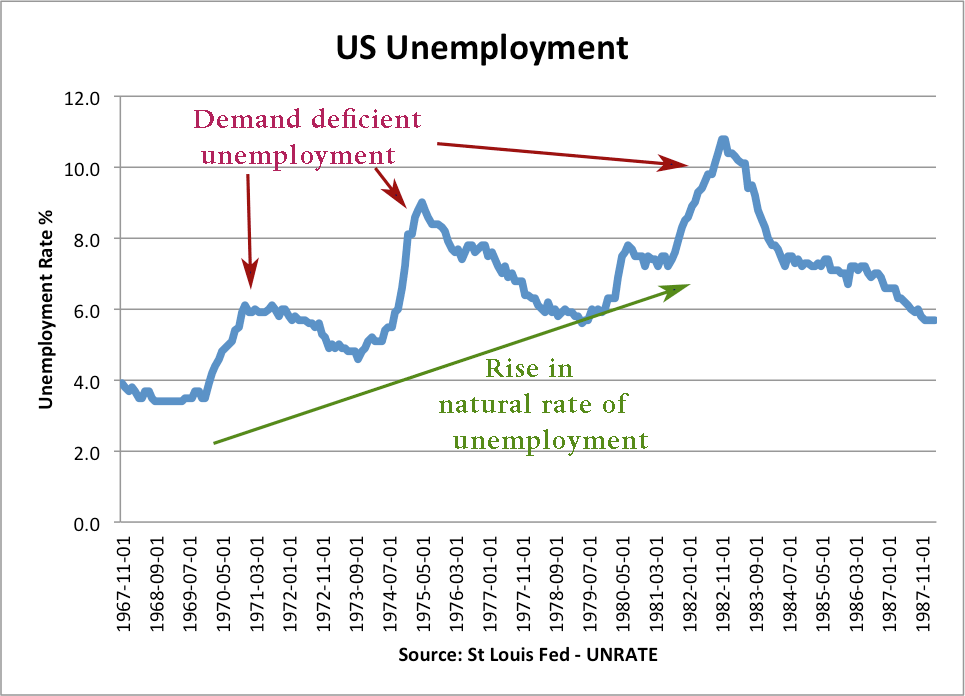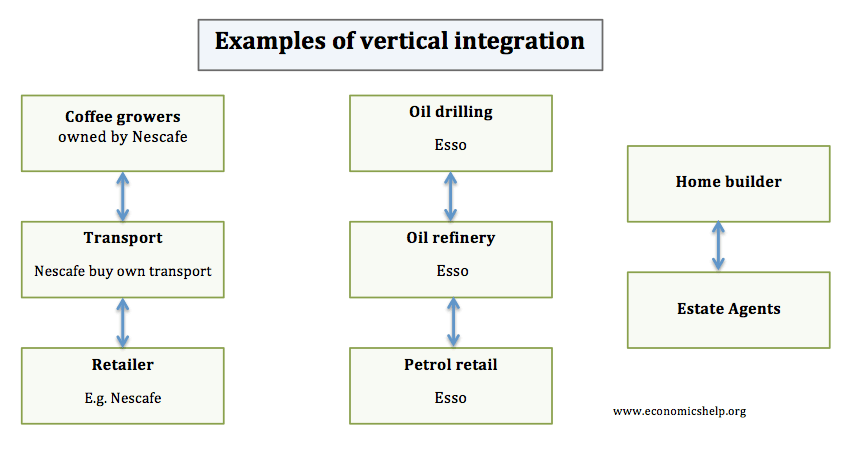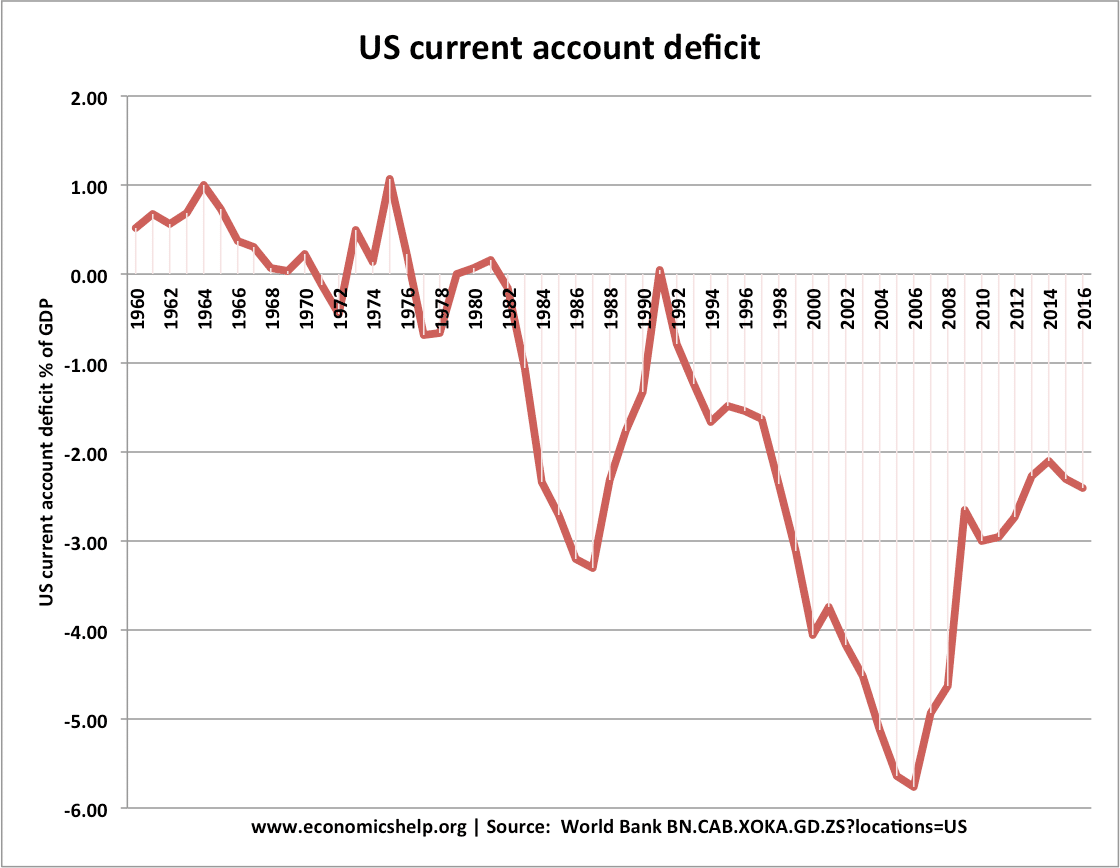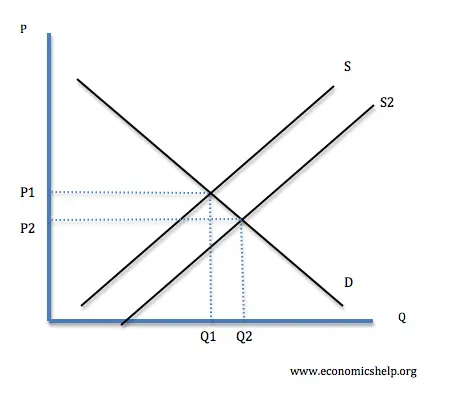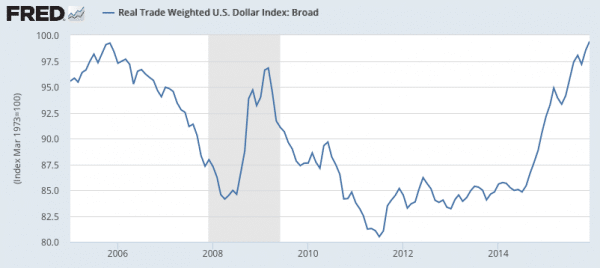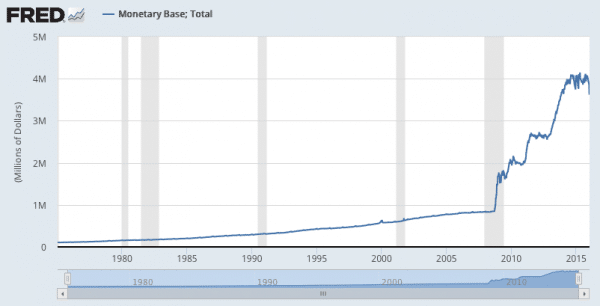Readers Question: Economic theory says that when Quantity (Q.S) increases Price (P) should ordinarily fall. After the 2007 crisis in the USA, the FED pumped billions of Dollars into the economy through QE. However the price of dollars, interest rate has not only fallen lower, but is closer to zero as of today ( 2016). How do you explain this?
It is true that since 2007, the Fed has increased the money supply, but there has been no collapse in the dollar, and inflation has stayed very low.
You might expect increasing the money supply would cause a lower value of the dollar. A simple supply and demand diagram.
Traditional economic theory states that ceteris paribus increasing the money supply will lead to inflation and a fall in the value of the currency. However, this makes assumption about the state of the economy.
Why has the dollar not fallen during this period of low interest rates and quantitative easing?
1. Dollar relatively stronger than other currencies.
In normal economic circumstances, low interest rates in US and Q.E. would cause a fall in the Dollar. However, most other major economies are seeing a similar situation of ultra low interest rates and quantitative easing. In the case of Europe, there are great concerns about the state of the Euro, and Eurozone economy, making Euro weak. A currency will fall if interest rates are relatively lower than elsewhere.
Even the prospect of a rise in interest rates from 0.5% to 1.0% have been a factor behind strong rally in dollar since 2014.
In recent months, many oil exporting countries have seen oil prices plummet and therefore their currencies have struggled. The dollar if anything, benefits from weak oil prices.
2. The increase in the monetary base has not led to same increase in broad money supply
The sharp increase in the monetary base, caused by the action of the Fed.

